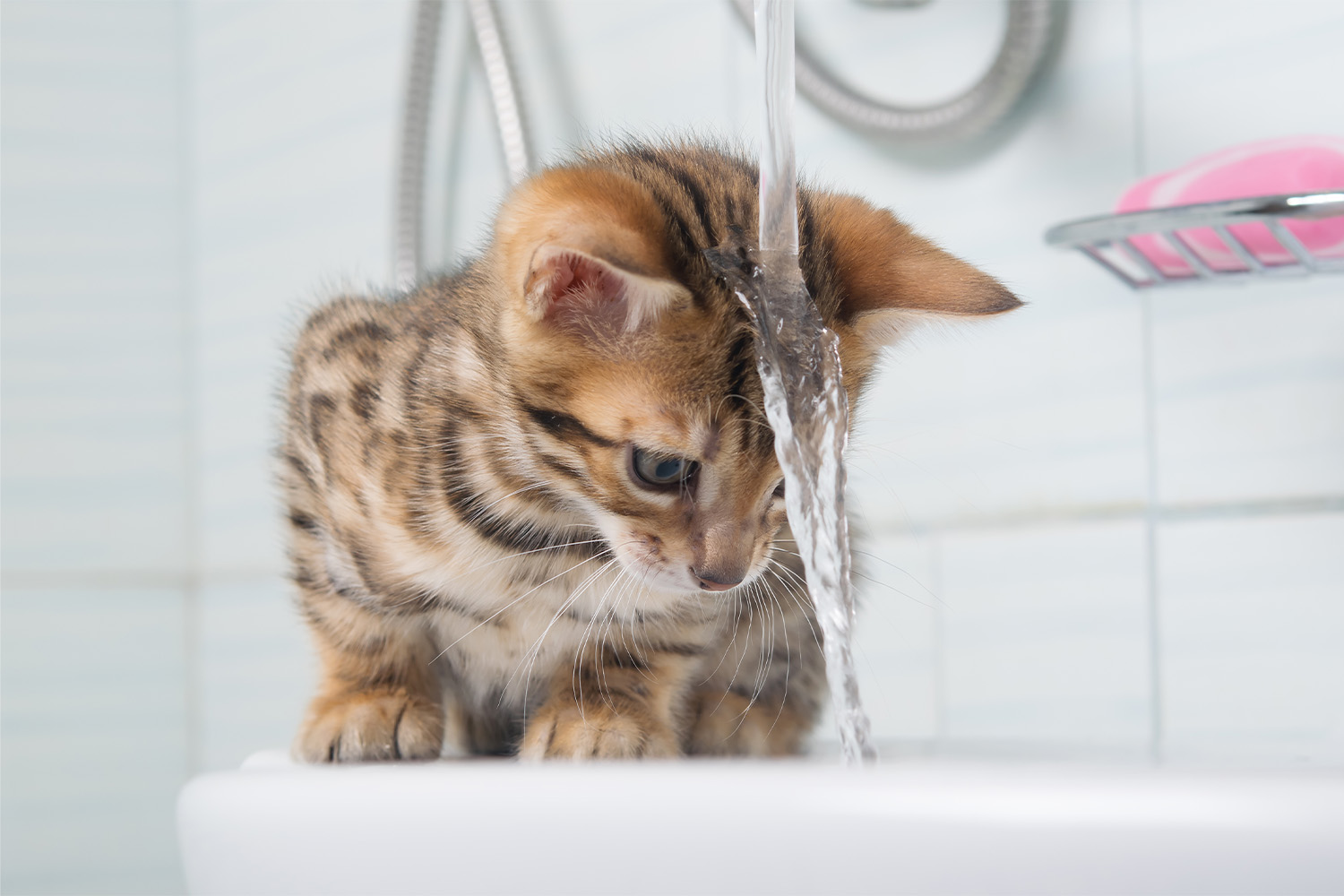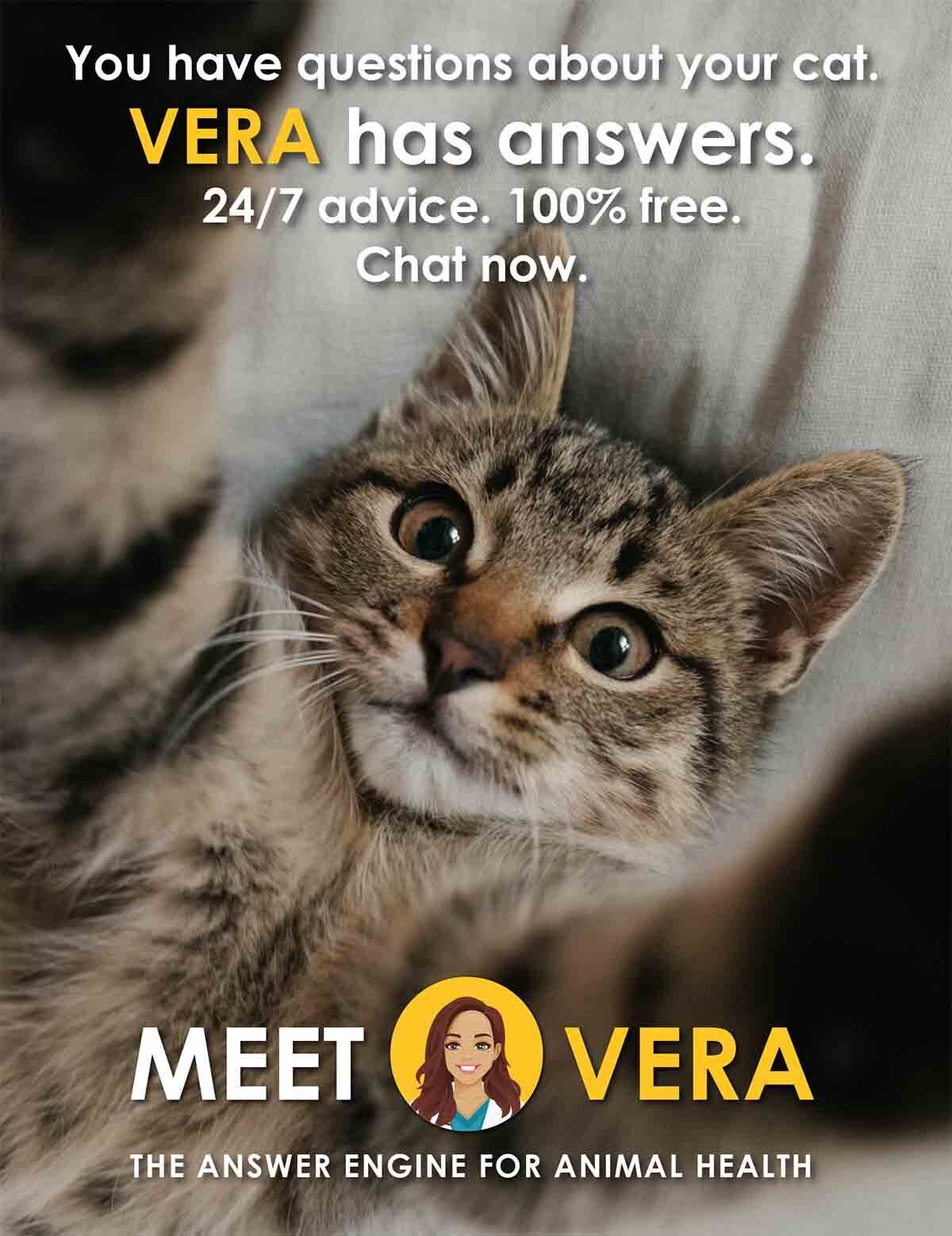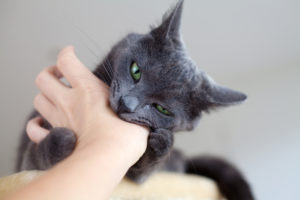The strange quirks and behaviors of our pets can provoke a lot of emotions. Sometimes they can be fascinating; sometimes, they can be frustrating and worrisome; and sometimes, they can just make us laugh. One behavior that has brought out all of these emotions in cat owners is their somewhat adversarial relationship with a substance that we humans find so normal — water.
It’s likely that you’ve heard of this cat quirk at some point, and you’ve probably seen a viral video online that captures the phenomenon. But you also may have wondered, especially if you have a cat yourself, what exactly causes this behavior.
In this article, we’re taking a deeper look into the topic. We’ll clue you into what they’re thinking and how you should respond to your cat getting wet.
Why Do Cats Hate Water?
If domestic cats and wild cats alike hate water, then why do ours seem to be big fans of drinking from their water bowls? And why are they sometimes attracted to tap water coming out of a faucet?
Cats and Hydration
This is an important distinction to make for a cat’s relationship to water. Cats are generally perfectly fine with drinking water.
Felines generally don’t seem to drink as much water as dogs — over the course of one day, cats need about four ounces of water for every five pounds of lean body weight. One reason behind the apparent disparity is that cats tend to consume wet food, which is sometimes up to 80% water. If your cat seems to struggle with staying hydrated, reach out to your veterinarian for assistance.
Presence of Water vs. Immersion in Water
Scientists believe cats actually like the sound and movement of running water: It’s believed that it stimulates their strong prey drive.
What the average cat really hates is getting wet, especially with large bodies of water. The list below applies primarily to when cats get their fur wet — they’re not swimmers or big fans of bath time.
Water Changes a Cat’s Weight
If you get caught in a downpour without an umbrella, the first thing you’ll likely do when you get home is to change out of your heavy, soaking-wet clothes. This is what cats feel like when they get wet, except the “clothes” are attached to their skin.
Cats are extremely agile creatures, and the extra weight that wet fur puts on them can make them feel quite uncomfortable. It puts them out of their natural element and messes with their navigation.
It’s an Evolutionary Trait
Depictions of cats can be found on the walls of the ancient pyramids of Egypt — they have historically lived in mostly dry climates. From an evolutionary standpoint, this has made them ill-equipped to deal with things like rivers, oceans, and lakes.
If a cat is placed near a bathtub, their primal instincts are likely signaling to them, “danger!”
Compare this to big cats that hail from warm climates — they tend to enjoy water. Jaguars, ocelots, and tigers love water. Cats from cold areas (the lynx, snow leopard, and bobcats) might avoid water to stay warm.
Past Negative Experiences
If a cat has experienced a stressful situation with water during their kitten years, they could possibly carry that fear with them into adulthood.
If your cat hates water, it may not be their ancestral memories affecting them. It may just be the early memories of their first interactions with water affecting them. If your cat despises water, cat-proofing your home could be wise.
They Don’t Like the Smell of Bathwater
Cats have a much stronger sense of smell than we do. While a bathtub full of tap water may be completely odorless to us, it is not for our feline friends. They can pick up on the smell of the chemicals added to municipal water and aren’t comfortable if their coat is covered in it.
They’re Not in Control
When a cat interacts with a dripping tap while sitting on a dry countertop, they feel in control of the situation. If any threat arises, they can easily escape. If they become drenched, they lose their sense of control.
They can’t see as well, they lose their traction, and their coat is weighing them down. They just feel trapped.
Are There Any Types of Cats That Like Water?
While it’s true that most cats avoid getting wet at all costs, there are a few exceptions to the rule.
Here are the breeds of cats that could have no problems with water:
Maine Coon
This breed of cat has a special water-resistant coat. They’re often attracted to water and love to splash around in it — If you leave a tap running in your home, they’ll likely seek it out!
Maine coons have historically been used on wooden ships to control pests. This may have made them more comfortable around water over time, or their genetics made them one of the only felines able to do the job. It’s a chicken-or-the-egg dilemma, but regardless, these cats are cool with water.
Bengal
This breed is a descendant of water-loving Asian leopard cats. This is what likely makes them fond of and comfortable around water. Bengals are naturally adventurous and playful; people often consider them the dogs of the cat world.
Turkish Van
These cats have been given the nickname “the swimming cat.” Their coat does not hold onto water, which has made them comfortable getting wet. Owners of Turkish vans often buy kiddie pools so their cats can paddle around all they want.
Abyssinian
There’s nothing particularly unique about this breed’s coat; they are just comfortable around water. Experts believe it has something to do with their genetic history — they arrived on the European continent hundreds of years ago by boat, so they likely feel rather content around bodies of water.
What Should a Pet Parent Do if Their Cat Gets Wet?
Although cats are masters of staying clear of water, the occasional accident can happen — with their affinity for exploration, a slip or fall into a sink, bathtub, toilet, or pool is not uncommon.
Here’s what to do if your feline friend gets soaked:
- Try to keep your cat calm. Getting wet can be a really stressful experience for your cat, so be sure to be as calming and comforting as possible while they dry off.
- Wrap a towel around them. You can hold them in a soft towel on your lap and gently squeeze the towel to help the water absorb.
- Keep them warm. It’s best to put your cat in a warm room while they continue to dry. It will comfort them and help them dry faster.
- Don’t use a hairdryer. The sound and sensation of a hairdryer may scare your cat and can cause them to get aggressive. Additionally, the hot air can irritate the cat’s skin.
- Give them space. Your cat probably needs to decompress from the experience, so perhaps give them a treat and leave them alone for a little while. If your pet is showing signs of stress, check out our dog and cat anxiety resources.
Conclusion
There are several factors that play into a cat’s innate fear of water. Some of it is evolutionary, and some of it has to do with the anatomy of their senses. While there are some unique breeds of cats who might enjoy water, most felines will avoid getting wet at all costs.
Whether you’re looking for ways to keep a water-adverse cat away from the bathtub or are seeking info on how to help your cat safely engage with water, AskVet can help. Upon signing up for an AskVet membership, schedule a virtual chat with our team of vets and pet coaches.
Our CPLCs™ can help build a 360-degree Lifestyle Plan for every animal member of your household, answering any questions you have and offering guidance along the way. An AskVet membership also includes access to the AskVet Clubhouse and all the 24/7 support you need!
It takes a village to raise a pet, but that village can be anywhere in the world with AskVet.
Sources:
Why Do Cats Hate Water? | Britannica
A Cat’s Five Senses | Texas A&M School of Veterinary Medicine & Biomedical Sciences
Hydration | Cornell University College of Veterinary Medicine
Cats in Ancient Egypt | Acoma Animal Clinic
Five things you didn’t know about tigers | World Animal Protection








